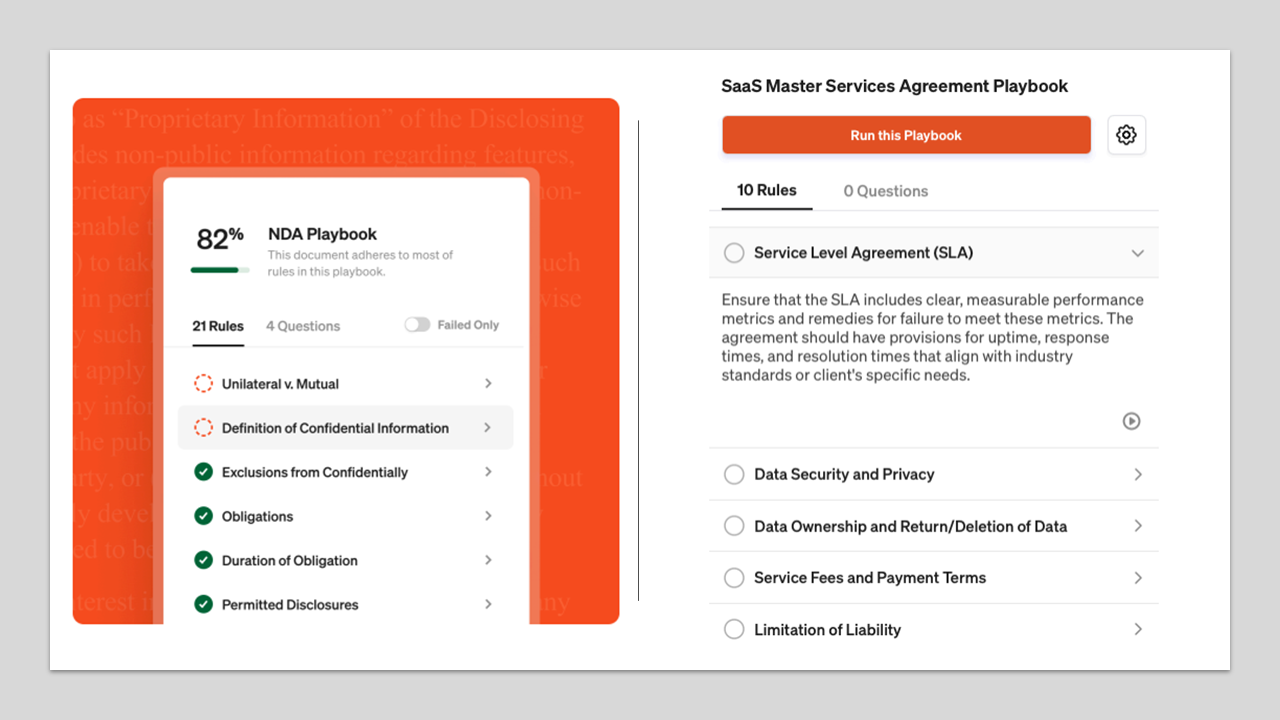(Photo
by
Sean
Gallup/Getty
Images)
On
Monday,
Taylor
Lorenz
posted
a
telling
story
about
how Meta
has
been
suppressing
access
to
LGBTQ
content across
its
platforms,
labeling
it
as
“sensitive
content”
or
“sexually
explicit.”
Posts
with
LGBTQ+
hashtags
including
#lesbian,
#bisexual,
#gay,
#trans,
#queer,
#nonbinary,
#pansexial,
#transwomen,
#Tgirl,
#Tboy,
#Tgirlsarebeautiful,
#bisexualpride,
#lesbianpride,
and
dozens
of
others
were
hidden
for
any
users
who
had
their
sensitive
content
filter
turned
on.
Teenagers
have
the
sensitive
content
filter
turned
on
by
default.
When
teen
users
attempted
to
search
LGBTQ
terms
they
were
shown
a
blank
page
and
a
prompt
from
Meta
to
review
the
platform’s
“sensitive
content”
restrictions,
which
discuss
why
the
app
hides
“sexually
explicit”
content.
This
is
notable
because,
despite
the
moral
panic
around
“kids
and
social
media,”
even
the
most
ardent
critics
usually
(reluctantly)
admit
social
media
has
been
incredibly
useful
for
LGBTQ
youth
seeking
information
and
community,
often
benefiting
their
health
and
wellbeing.
I
had
started
to
write
up
this
article
about
that,
planning
to
focus
on
two
points.
First,
contrary
to
the
popular
(but
false)
belief
that
content
moderation
targets
traditionally
“conservative”
speech,
it
very
often
targets
traditionally
“progressive”
speech.
We
see
these
stories
all
the
time,
but
the
MAGA
world
either
doesn’t
know
or
doesn’t
care.
Second,
this
seemed
like
a
pretty
strong
reminder
of
how
LGBTQ
content will
be
on
the
chopping
block if
KOSA
becomes
law.
Indeed,
the
very
existence
of
the
“sensitive
content”
restrictions
on
Meta’s
platforms
(including
Facebook,
Instagram,
and
Threads)
was
actually
the
company
trying
to
comply-in-advance
with
KOSA,
forcing
all
teenagers
to
have
the
“sensitive
content
filter”
on
by
default.
In
other
words,
Meta
effectively
revealed
that,
yes,
of
course
the
easiest
way
to
abide
by
KOSA’s
restrictions
will
be
to
restrict
access
to
any
pro-LGBTQ
content.
In
response
to
Lorenz’s
story,
Meta
said
(as
it
always
does
when
one
of
these
kinds
of
stories
pops
up)
that
it
was
“a
mistake”
and
promised
to
correct
it.
But,
as
Lorenz
notes,
the
suppression
happened
for
quite
some
time,
and
users
who
tried
to
raise
the
alarm
found
their
own
posts
hidden.
Some
LGBTQ
teenagers
and
content
creators
attempted
to
sound
the
alarm
about
the
issue,
but
their
posts
failed
to
get
traction.
For
years,
LGBTQ
creators
on
Instagram
have suffered
shadow
bans and
had
their content
labeled
as
“non-recommendable.” The
restrictions
on
searches,
however,
are
more
recent,
coming
into
effect
in
the
past
few
months.
Meta
said
it
was
investigating
to
find
out
when
the
error
began.
“A
responsible
and
inclusive
company
would
not
build
an
algorithm
that
classifies
some
LGBTQ
hashtags
as
‘sensitive
content,’
hiding
helpful
and
age-appropriate
content
from
young
people
by
default,”
a
spokesperson
for
GLAAD
said.
“Regardless
of
if
this
was
an
unintended
error,
Meta
should…
test
significant
product
updates
before
launch.”
Of
course,
just
as
I
was
initially
working
on
this
post
on
Tuesday,
Mark
Zuckerberg dropped his
whole
“hey
we’re
kissing
up
to
Trump
by
cutting
back
on
how
much
we
moderate”
thing,
which
certainly
changed
the
way
I
was
looking
at
this
particular
story.
While
I
wrote
more
about
that
announcement
yesterday,
I
didn’t
cover
the
specific
changes
to
the
policies,
as
those
weren’t
made
as
clear
in
the
initial
announcement,
which
was
more
about
the philosophy behind
the
policy
changes.
Kate
Knibbs,
at
Wired, had
the
scoop
on
the
specific
changes within
the
policies,
which
makes
it
clear
that
Meta’s
new
view
of
“non-biased”
moderation
is
basically
“hateful
people
are
now
welcome.”
In
a
notable
shift,
the
company
now
says
it
allows
“allegations
of
mental
illness
or
abnormality
when
based
on
gender
or
sexual
orientation,
given
political
and
religious
discourse
about
transgenderism
and
homosexuality
and
common
non-serious
usage
of
words
like
‘weird.’”
In
other
words,
Meta
now
appears
to
permit
users
to
accuse
transgender
or
gay
people
of
being
mentally
ill
because
of
their
gender
expression
and
sexual
orientation.
The
company
did
not
respond
to
requests
for
clarification
on
the
policy.
Again,
Meta
is
absolutely
free
to
do
what
it
wants
with
its
policies.
That’s
part
of
its
own
free
speech
rights.
And,
yesterday,
I
explained
why
some
of
the
underlying
reasons
for
the
policy
changes
made
sense,
but
here
they’re
not
just
saying
“hey,
we’re
going
to
be
less
aggressive
in
pulling
down
content,”
they’re
explicitly
signaling
“hate
has
a
home
here!”
I
mean,
what
the
fuck
is
this?
We
do
allow
allegations
of
mental
illness
or
abnormality
when
based
on
gender
or
sexual
orientation,
given
political
and
religious
discourse
about
transgenderism
and
homosexuality
and
common
non-serious
usage
of
words
like
“weird.”
That’s
in
a
section
saying
users
are not allowed
to
post
about
others’
“mental
characteristics”
including
mental
illness,
but
then
they
create
that
new exception to
that
policy.
If
it
wasn’t
already
clear
that
Meta’s
new
policies
are
deliberately
bending
over
backwards
to
write
in
exceptions
for
MAGA
culture
war
favorites,
just
take
a
look
at
the
other
changes
Wired
highlighted:
-
Removing
language
prohibiting
content
targeting
people
based
on
the
basis
of
their
“protected
characteristics,”
which
include
race,
ethnicity,
and
gender
identity,
when
they
are
combined
with
“claims
that
they
have
or
spread
the
coronavirus.”
Without
this
provision,
it
may
now
be
within
bounds
to
accuse,
for
example,
Chinese
people
of
bearing
responsibility
for
the
Covid-19
pandemic.
-
A
new
addition
appears
to
carve
out
room
for
people
who
want
to
post
about
how,
for
example,
women
shouldn’t
be
allowed
to
serve
in
the
military
or
men
shouldn’t
be
allowed
to
teach
math
because
of
their
gender.
Meta
now
permits
content
that
argues
for
“gender-based
limitations
of
military,
law
enforcement,
and
teaching
jobs.
We
also
allow
the
same
content
based
on
sexual
orientation,
when
the
content
is
based
on
religious
beliefs.”
-
Another
update
elaborates
on
what
Meta
permits
in
conversations
about
social
exclusion.
It
now
states
that
“people
sometimes
use
sex-
or
gender-exclusive
language
when
discussing
access
to
spaces
often
limited
by
sex
or
gender,
such
as
access
to
bathrooms,
specific
schools,
specific
military,
law
enforcement,
or
teaching
roles,
and
health
or
support
groups.”
Previously,
this
carve-out
was
only
available
for
discussions
about
keeping
health
and
support
groups
limited
to
one
gender.
We
noted
yesterday
that
the
larger
change
in
direction
was
clearly
political.
The
specifics
here
make
that
even
clearer.
As
I
noted,
there
are some legitimate
rationales
for
cleaning
up
how
Meta
handles
enforcement
of
its
rules,
as
that
has
been
a
total
mess.
But
all
of
these
changes
are
not
in
how
they
handle
enforcement.
They’re
literally
all
about
creating
exceptions
to
their
(still
in
existence) hateful
conduct
policy to
create
space
for
the
exact
kinds
of
bigotry
and
hatred
favored
by
MAGA
provocateurs.
This
is
just
confirming
that
Meta’s
about-face
is
not
actually
about
fixing
a
broken
trust
&
safety
enforcement
program
writ
large,
but
to
just
rewrite
the
rules
to
allow
for
more
cruelty
and
hatred
towards
marginalized
groups
disfavored
by
the
MAGA
world.
It
seems
like
quite
a
choice.
We’ve
discussed
at
great
length
the
whole
“Nazi
bar”
concept,
and
this
is
very
much
a
Nazi
bar
moment
for
Zuckerberg.
This
is
not
calling
him
a
Nazi
(as
some
will
inevitably,
misleadingly,
whine).
The
whole
point
of
the
“Nazi
bar”
idea
is
that
if
the
owner
of
a
private
space
makes
it
clear
that
Nazis
are
welcome,
then everyone
else
will
come
to
realize
that
it’s
a
Nazi
bar.
It
doesn’t
matter
whether
or
not
the
owners
are
Nazis
themselves.
All
that
matters
is
the
public
perception.
And
these
specific
changes
are
very
much
Zuckerberg
yelling
“Nazis
welcome!”
A
couple
of
years
ago,
when
Substack
more
or
less
made
the
same
decision, my
main
complaint was
that
the
company
wanted
to
signal
that
it
was
the
Nazi
bar
by
dog
whistling
without
coming
out
and
admitting
it
outright.
It’s
your
private
property.
You
can
run
it
as
a
Nazi
bar
if
you
want
to,
No
one’s
stopping
you
from
doing
it.
But
fucking
own
it.
Don’t
give
some
bullshit
line
about
“free
speech”
when
it’s
not
true.
Just
own
what
you’re
doing:
“we’re
making
a
space
for
bigots
to
feel
comfortable,
by
changing
our
rules
to
expressly
cater
to
them,
while
expressly
harming
the
marginalized
groups
they
hate.”
That
would
be
the
honest
admission.
But
just
like
Substack,
Meta
won’t
do
this,
because
it’s
run
by
cowards.
Indeed,
the
most
incredible
thing
in
all
of
this
is
that
these
changes
show
how
successful
the
“working
the
refs”
aspect
of
the
MAGA
movement
has
been
over
the
last
few
years.
It
was
always
designed
to
get
social
media
companies
to
create
special
rules
for
their
own
hot
button
topics,
and
now
they’ve
got
them.
They’re
literally
getting
special
treatment
by
having
Meta
write
rules
that
say
“your
bigotry,
and
just
your
bigotry,
is
favored
here”
while
at
the
very
same
time
suppressing
speech
around
LGBTQ
or
other
progressive
issues.
It’s
not
“freedom
of
speech”
that
Zuck
is
bringing
here.
It’s
“we’re
taking
one
side
in
the
culture
war.”
In
altering
their
policies
to
appease
extremists,
Meta
is
directly
endangering
the
well-being
and
safety
of
LGBTQ
users
on
their
platforms.
As
mentioned,
he’s
free
to
do
that,
but
no
one
should
be
under
any
illusion
that
it’s
a
move
having
to
do
with
free
speech.
It’s
a
political
move
to
say
“Nazis
welcome”
at
a
moment
when
it
looks
like
the
rhetorical
Nazis
are
about
to
return
to
power.
I
had
mentioned
yesterday
that
this
was
Zuck
trying
to
follow
Musk’s
path,
which
makes
some
amount
of
sense.
Ever
since
Elon
took
over,
it’s
been
pretty
clear
that
Zuck
was
somewhat
jealous
of
the
way
in
which
Musk
basically
told
anyone
who
didn’t
like
how
he
was
running
ExTwitter
to
fuck
off.
So,
it
makes
sense
in
two
dimensions:
(1)
trying
to
be
more
like
Elon
in
not
giving
in
to
public
pressure
and
(2)
the
spineless
appeasement
of
the
new
political
leaders.
But
it
doesn’t
make
much
sense
on
the
one
other
vector
that
kinda
matters:
business.
Hell,
Zuckerberg
rushed
out
Threads
as
a
competitor
to
ExTwitter
because
people
at
Meta
recognized
how
Elon’s
haphazard
mess
of
moderation
had
driven
not
just
users
away,
but
advertisers
too.
Zuck
may
be
betting
that,
because
a
slim
margin
of
voters
put
MAGA
in
charge,
advertisers
and
users
will
fall
in
line.
But
I’m
guessing
it’s
a
bet
that’s
going
to
bust
in
a
pretty
embarrassing
manner
before
too
long.
Meta’s
Moderation
Modifications
Mean
Anti-LGBTQ
Speech
Is
Welcome,
While
Pro-LGBTQ
Speech
Is
Not
More
Law-Related
Stories
From
Techdirt:
Court
Denies
Molson
Coors’
Appeal
To
Lower
Damages,
Get
New
Trial
In
Stone
Brewing
Ruling
Florida’s
‘Halo
Law’
Goes
Into
Effect,
Which
Will
Just
Let
More
Cops
Dodge
Accountability
Blumenthal
So
Eager
To
Bring
Back
KOSA,
He
Admits
Its
Purpose
Is
Censorship

















